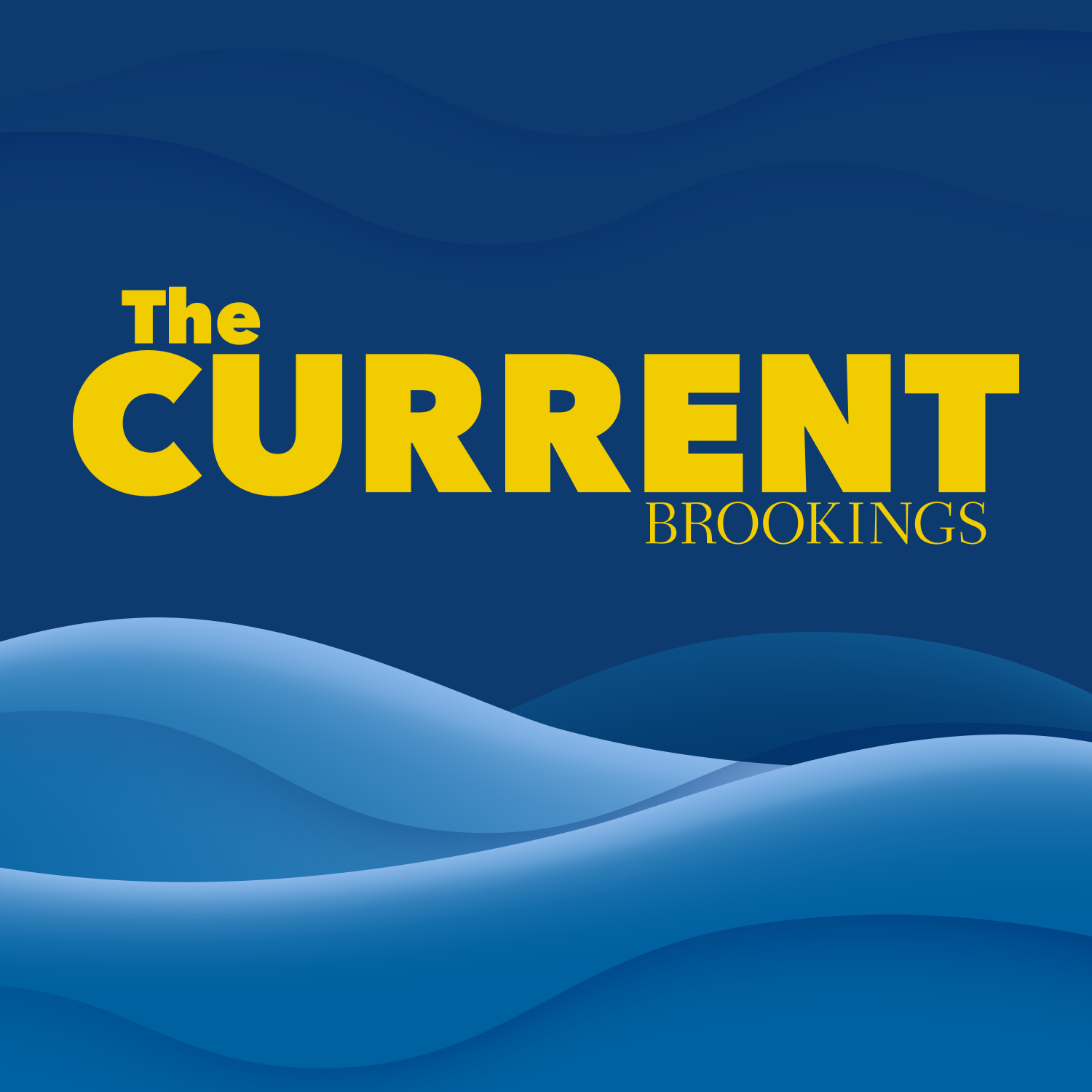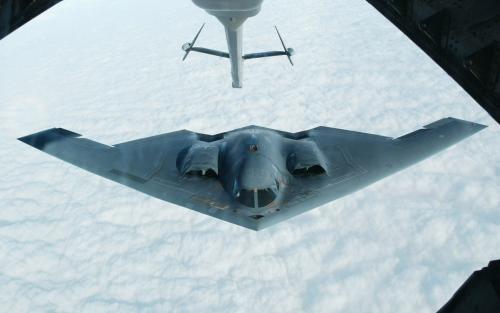“Eventually humanitarian assistance is just a Band-Aid. It’s not really a sustainable equilibrium that we’re in right now. . .There really needs to be a very clear conversation, a very difficult conversation of whether our policies are, in fact, hurting the Taliban or the Afghan people.”
One year after the U.S. troop withdrawal, Afghanistan faces a collapsed economy, humanitarian crisis, and a Taliban regime essentially unchanged from that of 1996-2001. Madiha Afzal discusses the Taliban’s restrictions on civil society, the segregation of women and girls from public life, and the need for more creative policies to alleviate Afghan people’s suffering without helping the Taliban.
Related material:
- What Ayman al-Zawahri’s death says about terrorism in Taliban-run Afghanistan
- What is the current state of Afghanistan’s economy?
- The relationship between schooling and conflict in Afghanistan
- Allies: How America failed its partners in Afghanistan
- The future of US policy toward Afghanistan
Listen to Brookings podcasts here, on Apple or Google podcasts or on Spotify, send email feedback to [email protected].
Thanks to audio engineer Gaston Reboredo.
TRANSCRIPT
PITA: August 30 marks one year since U.S. forces withdrew from Afghanistan, followed shortly by the collapse of the Afghan government, and the return of Taliban control over the country. Here with us to talk about what life in Afghanistan looks like after one year under the Taliban is Madiha Afzal, a fellow with the Center for Middle East Policy here at Brookings. Madiha, thanks for much for talking to us today.
AFZAL: Thanks for having me.
PITA: Part of the story of the last 20 years has been of both Afghans and the U.S. and international development agencies working to build and strengthen the structures of life in Afghanistan, the civil society, the systems of governance. When we say that the Taliban is now ruling in Afghanistan, what does that look like? One year in, what’s the state of Afghan civil society, of journalism, and of governance there?
AFZAL: Well, one year in, the Taliban have really struggled to transition from a fighting force and insurgency to now being in charge of Afghanistan, to governing. And part of that is because that was what the foot soldiers were used to for twenty years, was fighting, and now they’re in office in many places in the country. And part of it is because there isn’t really an economy to govern because of sanctions, because of the cutting off of aid that Afghanistan was so dependent on. The country doesn’t really have a functional economy, so that has also stymied the Taliban.
The way the structure of government works is that it is fractured, and essentially what we’ve seen over the last year are divisions within the Taliban. We’ve seen the more hardline factions of the Taliban essentially win out, such as on the decision not to allow girls to attend a secondary school. That was a decision that came from the ruler, the emir in Kandahar. And so on many, many decisions, we’ve basically seen a Taliban which, at least some factions of Taliban had promised they would become a more moderate entity, they’ve really reverted to the Taliban 1.0, the Taliban of twenty-six years ago, twenty-seven years ago, when they were first in power.
So that’s the first thing I’ll mention. On journalists, civil society, et cetera. Well, I would say, reporting is much harder. It’s still happening. There are news channels like TOLOnews still running. They still have women reporters as well, but things are much harder now. We’ve seen journalists face restrictions, they’ve been beaten up. Women and journalists have to cover themselves because of the restrictions that the Taliban have put in place. In the workplace – and I’m sure we’ll talk more about women and girls – in the workplace, you’ve seen women essentially recede from government offices, but otherwise these offices work largely the way they used to. They’ve just been replaced by more Taliban officials. There are restrictions on civil society in terms of protests, yet there are still really brave Afghan women and girls who come out to protest despite the risks they face. So while everything is very, very different, and has regressed, especially in the urban areas, there are still factions of society that we see are displaying resilience and trying to push back on the hardline nature of Taliban rule.
PITA: Yes, we saw some of those protests just a few weeks ago, mid-August that the women were marching in protest in Kabul. They were calling for “bread, work, and freedom.” As you mentioned, when the Taliban was first coming back into power last year, there were some of these promises not to restrict schooling for girls, but of course we’ve seen that change, that education has been shut down, everything above sixth grade. Talk with us some more about what life is like now for girls and women in Afghanistan.
AFZAL: Well, there’s been an undeniable kind of regression in women’s and girls’ rights, especially in the urban areas. In rural areas, things have not really changed quite as much as they have changed in the urban areas. And girls’ education and women’s movement in public spaces was largely restricted even over the last twenty years, and so there’s been less of a difference. But in urban areas like Kabul, the women and girls are largely cut off from public life.
So what we’ve seen is that girls are not allowed to go to secondary school. The Taliban had made a promise that on March 24 of this year, they would send girls to secondary school, and at the last minute, there was sort of an edict essentially sent from Kandahar, basically, which said that girls were not allowed to attend secondary school. So if they were in their backpacks, they were ready to go to school, and you know essentially their dreams were crushed. Girls are still allowed to attend university, though, so this is just a specific portion of girls that aren’t allowed to go to school, but eventually, if this lasts for a few years, you’re not going to have any girls attending anything beyond elementary school once the girls who are in university graduate out, because you’re not going to have a pipeline of girls to go to university.
So, I would say women can still work in some offices, et cetera, but they’re largely segregated, very different from the way they used to be. They have to cover themselves. And so they really have seen major restrictions in urban areas to the way things were just a little over a year ago. Life for them has changed dramatically. That being said, there are still some informal mechanisms for girls to go to a secondary school. There are these underground schools. Those came up when the Taliban ruled the first time around. Those have come up again. And then the second, and really heartbreaking story, is that there are some girls who are repeating 6th grade over and over again just to keep their minds active, just so that they can attend school.
Conferences are segregated, women can only teach women, and women doctors attend to women and girls. So this largely segregating women from public spaces has a real impact on how much they can contribute to society. And so slowly we’re seeing that completely wash away.
PITA: Sure. Another of the significant areas of concern as the U.S. was withdrawing last year was about what would happen to the many, many Afghans who had worked closely with the U.S. military, with international agencies, with the Afghan government. So, the U.S. had their Special Immigrant Visas – and I’m sure other countries also had some of their own similar programs. What’s the status of some of these efforts to get those Afghans out, the people who may be particularly targeted by the Taliban for retribution for their work with the U.S. and other Western forces?
AFZAL: There are still upwards of seventy thousand special people who were in line for Special Immigrant Visas waiting, and about ten thousand of them have a pretty high level of approval. They’re still waiting to be evacuated. But even for those who have been evacuated through this program, first we saw withdrawal was chaotic, we saw the scenes at the airport last year. Some of them were separated from their families in the effort to evacuate, and so some of them have families still in Afghanistan, and are separated, members of their immediate family live separated from them. And then there are also these stories of those who have settled in the West struggling because essentially, you know, the life they knew is over. So even for those who have been evacuated, who have managed to make it out, life is quite tough, and they have to find a way to work. They have to find a way to make ends meet, they have to find a way to have a productive life. So even for them the story is not simple, and there are concerns.
But, as you said, there are upwards of seventy thousand still waiting, and they of course face a very real threat of retribution from the Taliban. What has happened recently is that DHS, State to try to simplify the process, to make it one form, and so we’ll see how that bears out.
But I think, as with many of the concerns about Afghanistan over the last year, whether it’s about the humanitarian crisis, whether it was about Special Immigrant Visas, a lot of it fell away from the headlines pretty soon after the last troops withdrew exactly a year ago. So we didn’t see as much attention being paid to the issue, especially with the Russian war in Ukraine, and the crises that followed it, I think the world’s attention sort of drifted away from Afghanistan. And we’ve seen the impact that on various levels in Afghanistan, and that includes the fact that perhaps not as many Special Immigrant Visas were issued, and perhaps more Afghans suffered in the humanitarian crisis than should have.
PITA: Yeah, I want to end on the note the humanitarian crisis that’s going on there. The U.S. had frozen approximately nine and a half billion dollars of Afghan central bank assets, and, as you mentioned at the top, there’s all sorts of international financial restrictions, due to counterterrorism sanctions and that sort of thing. And the Afghan economy has essentially collapsed. The UN reports that the country is headed for “universal poverty.” There is nearly ten million children going hungry every day. How is the international community grappling with this? And are they reconsidering at all how to balance the condemnation for the Taliban, for their support of terrorism and their human rights abuses with the need to avoid mass starvation of Afghan civilians?
AFZAL: This is such a this is such a difficult issue. And essentially the promise of the Doha deal that was signed with the Taliban, and that of the withdrawal, was that the West had the tools that it needed in order to constrain the Taliban, in order to moderate the Taliban. And those tools, we said, were economic leverage. We could use the tools of sanctions and cutting off of aid to try to get the Taliban to moderate, and that was the strategy. Well, a year in, we can sort of safely say that that strategy has not worked. It has not worked in terms of moderating the Taliban and we’re seeing that right now most greatly, of course, with the decision not to send girls to secondary school, but we also saw that with the fact that Ayman al-Zawahiri was found in Kabul just at the start of this this month. And so there’s the worry of the Taliban-run Afghanistan being a safe haven for terrorist groups such as al-Qaida.
So, the issue I think here is that the U.S. and the West is sticking with its policy, which was that these are the tools that we are going to use, sanctions, cutting off of aid to try to get the Taliban to moderate. The Taliban is sticking to its ideology, and what we have seen over the last year is that it has not changed. It is essentially the same Taliban that ruled from 1996 to 2001. It is essentially still the Taliban 1.0 There may be more moderate factions in the Taliban, but eventually, if the hardline factions are the ones that are prevailing, the ones that are running things, then that is what we’re seeing. And in between the West sticking to its side of things and the Taliban to their side of things, essentially with sanctions, with the freezing of seven billion in reserves, which essentially, basically collapsed the Afghan economy, what we really have seen are that the Afghan people have suffered, in the middle, right? The common man has suffered.
And of course you’ve listed out some of what has happened. 19 million Afghans are facing food insecurity. That’s half of the population. They’re lining up at bakeries. Some of them have had to sell – something that’s unthinkable – their children to feed their families. We’re seeing millions of malnourished children, hunger all around.
And essentially, one thing that has happened is that the West has given humanitarian aid. Perhaps not the amount that the UN has called for, only about half of that amount. The UN launched its largest-ever humanitarian appeal, and that was for Afghanistan. And of course the decision not to send girls who came out as the UN had launched its appeal, and that no doubt curtailed the giving of nations for that appeal. But we still saw that the worst of the humanitarian crisis was largely staved off through humanitarian assistance, but eventually humanitarian assistance is just a Band-Aid. It’s not really a sustainable equilibrium that we’re in right now. And I think one struggle that we’ve seen is that, especially over the fall, we were slow in the easing of rules to get around sanctions so that aid could get to Afghans. So there might need to be a more proactive approach that the West could take in order to better the lives of Afghans. And I think there really needs to be a very clear conversation, a very difficult conversation of whether our policies are, in fact, hurting the Taliban or the Afghan people.
And so we really need to be looking at how we can, without helping the Taliban, deal with the economic tools that we have, so that Afghan people do not suffer needlessly. And so in that, I think, instead of a policy that’s reactive, that’s giving humanitarian aid after the fact, we need to shift to a more proactive policy and devise creative solutions that essentially lend liquidity to the Afghan economy, and allow people to work and get money for the jobs that they’re doing rather than essentially starving just because the liquidity in their economy is so limited.
So I think there needs to be some creativity here, and some more concerted focus on making sure that our policies are not hurting the Afghan people. At this point, our approach has largely been reactive, and it’s largely focused on humanitarian assistance, but not really thought of kind of a long-term solution, given the realities that the Taliban are a regime, they are an organization that has not changed ideologically.
PITA: All right, Madiha, it’s a thorny problem, as you explained. We’ll stay tuned. I want to thank you for talking to us today, and hopefully they’ll come up with some more creative solutions to this, as you described.
AFZAL: Thanks, Adrianna.
The Brookings Institution is committed to quality, independence, and impact.
We are supported by a diverse array of funders. In line with our values and policies, each Brookings publication represents the sole views of its author(s).







Commentary
PodcastWhat’s happening in Afghanistan one year after the U.S. withdrawal?
August 30, 2022
Listen on
The Current Podcast